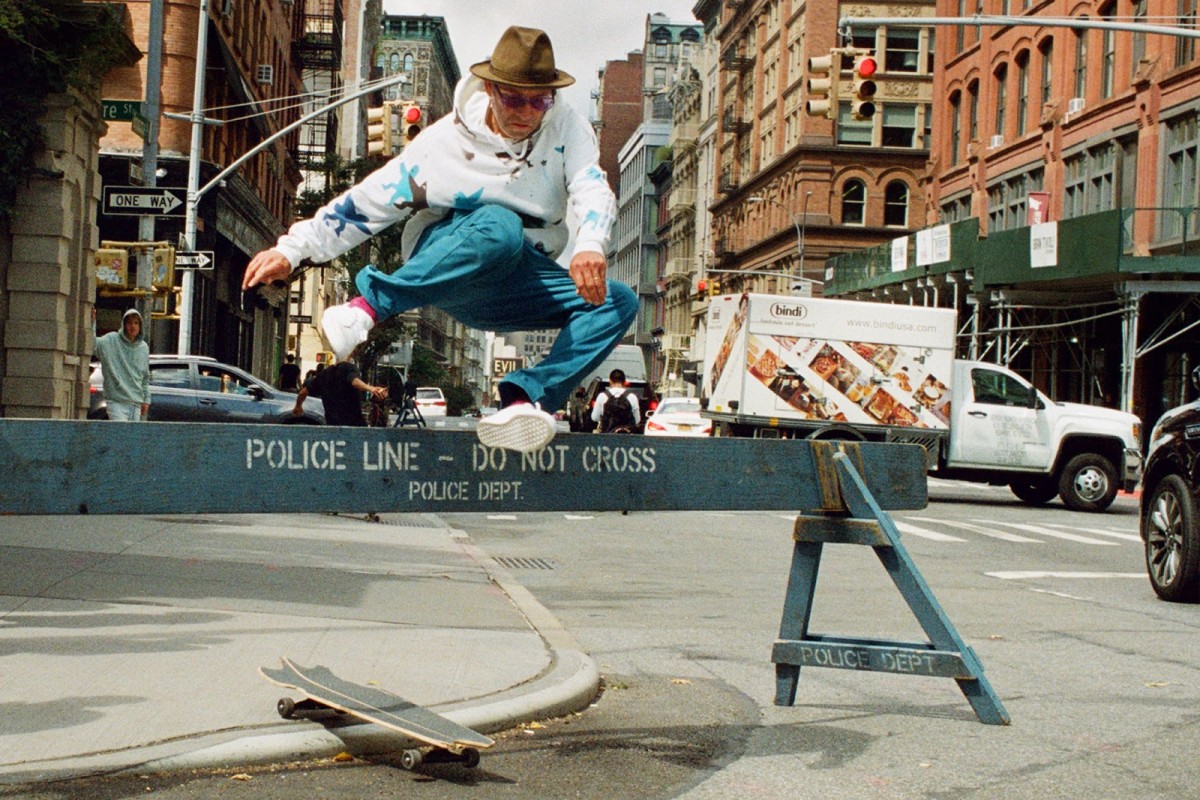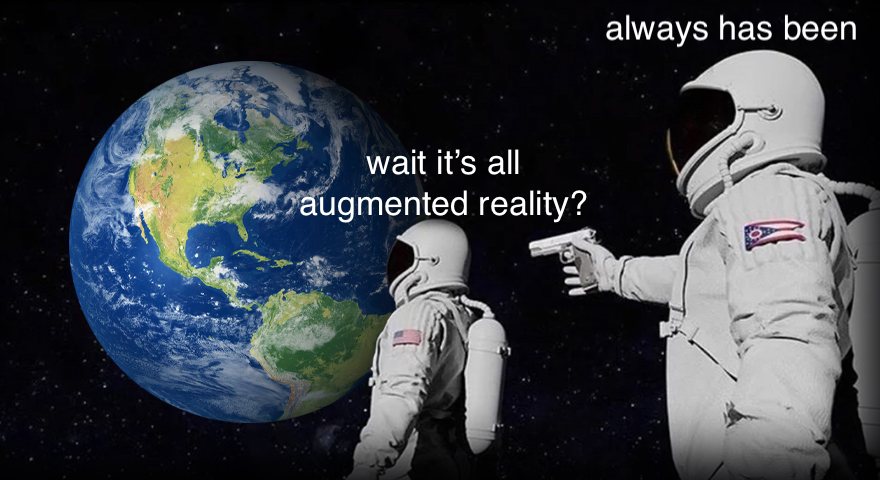Augmented Reality - A Skateboard for the Mind

When I used to do a lot more skateboarding I would go to a new place and look at it in terms of skate spots. I’d see a set of stairs with a perfect hand rail to grind down, or a weird concrete blob that could function as a ramp. I saw a world that was catered to my interests. Using augmented reality, we will be able to bring information that is important to the user to the forefront of their thoughts. We already know that people’s brains instinctively filter things out (think video of the gorilla walking through the people playing basketball). Let’s ‘unfilter’, or bring to our attention, things which are actually important.
An obvious example is if you are in a new city the directions appear directly on the floor in front of you, so you don’t have to take your phone out to look at directions. Essentially the same function as a phone, but easier to use. Let’s say you are looking for somewhere to eat. Instead of scrolling through Yelp, you can walk down the block, and your glasses will show you information about each restaurant you pass by. Or you have dietary restrictions and you go to the grocery store and the packages change so that they emphasize whether or not you can eat the item. No more looking at the fine print on the back.
We can also do the reverse – filter out things that are not important. Billboards, advertisements on bus stops, neon colored packaging, are all designed to grab your attention. With AR, we can filter out these things so that we can focus on what actually matters to us. Think of it like an IRL ad blocker.
Put more philospohically:
The ‘Reality’ we experience is not the ‘real reality.’ The reality we experience is really an approximation of Reality which we have developed over thousands of years in order to take in critical information and leave out the rest. Think about it — birds have some type of weird vision where they can see tiny insects from 50 feet above the surface of the earth. I doubt they can appreciate a Leonardo Da Vinci painting though. This reality we have evolved to experience is what enables us to see certain colors, feel certain things like temperature, and smell certain smells (food cooking == good). Our senses served us well when we as a species lived in Africa and hadn’t migrated anywhere else, but once we started migrating other places our perceived reality becomes a hinderance. In fact, our perception is effectively hijacked by marketers to sell us things we might not really want or need.
Everything is Augmented Reality

I’m not an expert on human history, but I’m aware that humans have been inventing things for quite a while. These things we call ‘technology’. It doesn’t really matter how you define technology - the important thing is that technology enables humans to do things they otherwise wouldn’t be able to do. Fires enabled humans to stay warm and cook their food, among other things. The wheel enabled us to move stuff (or if you’re the Aztecs, provide entertainment for your children). Even ‘social technologies’ such as the idea of money or the state have enabled us to do stuff that we wouldn’t really consider ‘natural.’ So, essentially, every technology is a way of augmenting (changing) reality (if reality is what is natural).
I think it provides an interesting framework to look at AR through. Augmented reality will enable us to create new technologies much easier. Sure, this stuff might not be able to make a direct difference in the physical world, but as I briefly mentioned above, some of the most important technologies have been ‘social technologies’ which reside in our brains, not in the physical world. Creating digital things is much easier than physical things. There is much less capital involved and the iteration time is much faster.
Sharing Experiences
I believe this idea was stolen from Rony Abovitz, but I’ll still write about it.
Augmented reality is essentially another step towards brain computer interfaces. The phone already sort of does this, but AR glasses will bring us even closer. What will this enable us to do?
There are all types of things you can imagine, but you can’t get that image directly into another person’s brain. You have to express it in some form of art. AR (and VR, probably) could enable us to create these experiences as they were imagined and share them with everyone. We could create a pretty much exact situation and have other people, even strangers, experience it.
In a similar vein, there are all types of things that you can learn but can’t teach through a book. Surfing is an example. It is impossible to articulate all of the things you consider when surfing. I believe it is pretty much 100% an act of embodied cognition. Maybe you could pass on your training of this embodied cognition to other people through AR or VR. Probably not exactly, especially with something like surfing, but I’m sure with other types of training you could do it super well with AR. For example, putting together IKEA furniture. Something like that.